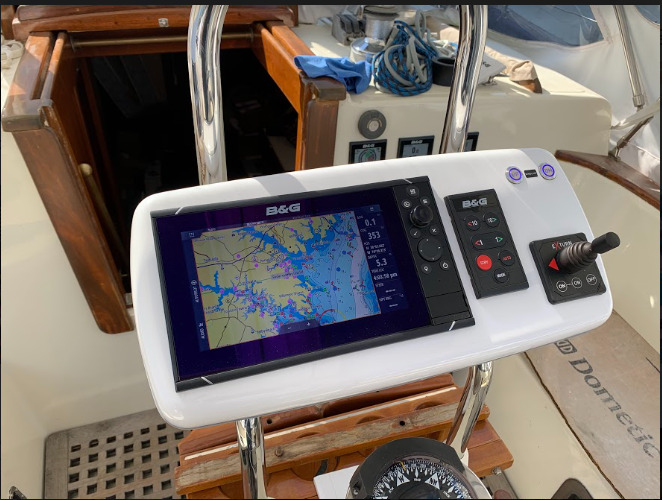
VHF radios are essential for communication and safety purposes in the event of an emergency.
It’s vital to know where you are on the water and to call for help if needed. VHF radios are essential for communication and safety purposes in the event of an accident or running aground. Every boater needs a VHF or 2-way radio, mainly if you sail significantly from the shore. But why? If you need help, you can simply call the authorities on your cell phone, right? Well, it’s not that simple. Here are some reasons you need a VHF radio on your boat.
VHF Radios Operate Without a Network
Imagine you are in an emergency situation offshore and away from cell towers. Or perhaps you are not that far from shore, but your phone is having difficulty obtaining reception. You won’t have to worry about losing cell service with VHF radios. While mobile phones rely on cell reception, data, and wifi, two-way radios are a self-contained communications network. If your cell phones aren’t working, your two-way radio will be there for you.
VHF Radios Have a Dedicated Emergency Channel
One of the most important channels to be familiar with is Channel 16. Channel 16 is the international distress frequency and should be used solely for emergencies.
Use Channel 16 when listening for, announcing, responding to emergencies, and making initial contact with other vessels. Boaters should make it a habit to monitor Channel 16 while out on the water continuously.
VHF Radios Communicate Across Great Distances
With the right technology, a two-way radio’s coverage can be extended across a very wide distance – over 30 miles. Obstacles in a radio’s line of sight might block or diminish its signal, but more powerful antennas can substantially extend this distance.
VHF Radios Can be Reached by Telephone
Many two-way radios have a telephony feature, which allows for communication between the radio and a landline or cell phone. This is possible because radio repeater stations can be connected to telephone networks. Telephony functions are beneficial if you need to communicate with people who don’t have a two-way radio. Emergency and rescue organizations, however, are used to communicating with two-way radios.
VHF Radios are Waterproof and Weatherproof
Some two-way radios are built to withstand very harsh environmental conditions. Rain, sand, and extreme cold do nothing to damage these rugged radios, as many VHF models are waterproof and sand-proof. Some can be submerged in water for up to 30 minutes at a depth of three feet and still function.
Marine Electric Systems, LLC is a Leader In the Maritime Industry
We here at Marine Electric Systems have over 30 years of industry experience. You can trust our team for reliable service and expert craftsmanship in the Maryland, Baltimore, Annapolis, and Baltimore city areas! We’re highly certified and adhere to all ABYC and NMEA regulations. We specialize in top-notch electrical solutions for recreational, commercial, and government boating clients. Anything from electrical refits, to navigation systems, or boating maintenance. To stay up to date on our services, follow us on Facebook, LinkedIn, Pinterest, Instagram, and YouTube. You can also contact us at 410-263-0807.
